Jennifer Huang
Departure
What’s a moment when you grew up? When you realized the help you get might not be the help you want?
We’re pleased to offer Jennifer Huang’s poem, and invite you to connect with Poetry Unbound throughout this season.
Pre-order the forthcoming book Poetry Unbound: 50 Poems to Open Your World and join us in our new conversational space on Substack.
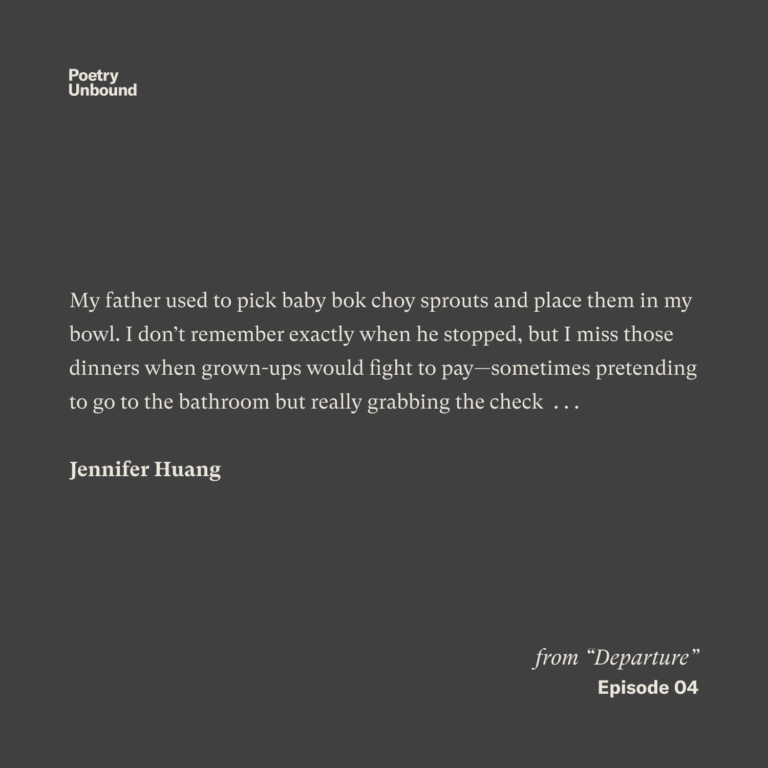
Guest
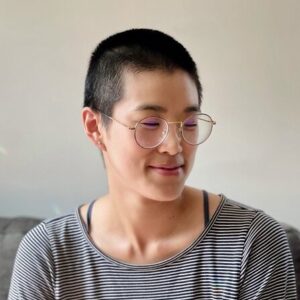
Jennifer Huang is the author of Return Flight, which was awarded the 2021 Ballard Spahr Prize for Poetry from Milkweed Editions. Their poems have appeared in POETRY, The Rumpus, and Narrative Magazine, among other places. They have received recognition from the Academy of American Poets, Brooklyn Poets, and the North American Taiwan Studies Association. In 2020, Jennifer earned their MFA in Poetry at the University of Michigan’s Helen Zell Writers' Program. Born in Maryland to Taiwanese immigrants, they have since called many places home.
Transcript
Pádraig Ó Tuama: Friends, thanks very much for listening to Poetry Unbound, whether you’re new or you’ve listened to them all — your attention makes everything worthwhile. And I’ve got some news: I’ve written a book, Poetry Unbound: 50 Poems to Open Your World. There’s 50 poems, each with a fresh essay written by me. I’d love if you pre-order it, or pre-order a few, and join up to our free interactive newsletter. Links to everything at poetryunbound.org.
[music: “Praise the Rain” by Gautam Srikishan]
My name is Pádraig Ó Tuama, and there’s probably nothing I prefer more than spending a full day cooking for a party that’s going to happen in the evening. One time, some guests around the table, not all of whom knew each other — I saw two people fall in love. It happened just like sunrise. I could see it happening, and I thought, Something’s going on here. Another time, a fight broke out. Another time, you heard somebody say something that they had probably never said before. What happens around the table always moves me. It’s not just about the food. The food is just what helps us all get into the conversation. I love seeing all of the dynamics that are happening and trying to figure out, how is it that the hospitality of the table can be a place where new things can happen?
[music: “Praise the Rain” by Gautam Srikishan]
“Departure” by Jennifer Huang:
“My father used to pick baby bok choy sprouts and place them in my
bowl. I don’t remember exactly when he stopped, but I miss those
dinners when grown-ups would fight to pay—sometimes pretending
to go to the bathroom but really grabbing the check. We would
choke down our food to get seconds though there was always plenty.
Slurping and clanking took place of conversation until the table
was left a wreck. My father and I would share what we called the
best parts of the fish—the cheeks and neck—and suck the meat from
the bones. He would cut a spoonful, place sweet-brothed ginger and
scallions atop, and tell me, Chew slowly and feel what you are eating.
Once, I realized a bone was stuck in my throat. The skeleton clawed
my speech—why didn’t I listen? My brother fed me vinegar-doused
rice. I took it, swallowed every bite and bit through acid nausea,
and gradually, from my throat it dissolved further, within, without
evidence.”
[music: “First Grief, First Air” by Gautam Srikishan]
This poem by Jennifer Huang is a prose poem. So when you look at it, it’s written out just like a paragraph. And a prose poem is an interesting thing. Some people would say that prose and poetry are opposites, and so therefore, a prose poem is always something in particular tension with itself.
But that’s only one view about what a prose poem is doing, and I’m not sure that prose and poetry are always opposites. So for other people, they might just look at it and see it as a block of text, something that’s saying, This is something really important. And ultimately, while this is a poem from Jennifer Huang about a time when they had a fishbone stuck in their throat, this is also a fairly normal experience, there was no emergencies being called.
And so one of the things that this is saying to us, perhaps, is that a simple, everyday, fairly average experience that somebody has is nonetheless something that’s really worthwhile paying attention to, because this prose poem is taking up so much space on the page. It’s expanding right across the page, not leaving a lot of room for space the way a poem normally would. And so the eye is drawn to this, understanding that a relatively everyday experience, is nonetheless something that is really asking for particular attention.
And then the question is, why? Why, of all the experiences that a person might have when they were younger, why is Jennifer Huang asking us to pay attention to this particular experience from their life? And that, I think, is a really interesting one. It almost feels like to me that this is a certain hinge point of childhood into something a little bit more grown-up.
[music: “Algea Trio” by Blue Dot Sessions]
Well, there’s a lot of ambivalent language in this poem. A long reflection in this book is about conflict in families, everyday conflict, really, that can be difficult but is not unusual. And in this poem you see phrases where that conflict is being drawn to the surface — even “fight to pay”: a certain pleasant kind of playacting and a certain performance of adulthood, a version of showing love and consideration to each other. But then there’s also “choke” and “slurping and clanking,” “the table was left a wreck,” “skeleton,” “clawed,” and “acid nausea.”
And one of the things that this poem is showing is that children are very attentive to all the dynamics where everybody is navigating versions of assertion and aggression and powerful language, in ways within which we do clash up with each other, and need each other, but also resist each other at times, too. And in the image of abundance that you see at this magnificent table full of food and generosity, Jennifer Huang I think is interested in using complicated, weighty words to show us how much energy and emotion and how much edging up towards each other can be happening in even very pleasant experiences.
[music: “Margerie” by Blue Dot Sessions]
The opening part of this poem seems to be so much about everything that’s happening at the table, and particularly the relationship between the poet and their father. The secret language of where the father would take the best pieces of the fish and “cut a spoonful, place sweet-brothed ginger and scallions atop, and tell me, Chew slowly and feel what you are eating. Time is slowing down, and it’s slowing down into a tenderness of particular emotion.
Then, suddenly, the father’s gone, and there’s this choking. And you see here that even in the midst of a familial scene, that a person can find something particular happening that’s just happening to them: “Once, I realized a bone was stuck in my throat.” There’s nobody else in that particular sentence. And then the brother comes in. And the brother knows an antidote — “My brother fed me vinegar-doused rice.” This is what the poem is suggesting will help to dissolve the fishbone that’s stuck in the throat.
I’m so interested in the economy of needing help, of receiving help or giving help, and in certain sense realizing a lesson and learning a lesson for which you have a before and after; that here, it wasn’t just the annoying warnings of parents — “Don’t slurp down your food, don’t choke it down, there’s plenty, there’s no rush” — here, there is the feeling of choking. And this poem is crossing a line into a way that the body learns a lesson and the body remembers, and then the body needed to receive help and needed to be able to cope with receiving help.
So much here, I think, tells us why this prose poem takes up so much space on the table. It feels almost like the prose poem is the expansion of that throat that’s taking up all the attention, and also the body that’s saying, This is what it’s like to suddenly realize, in your body, why a lesson was a lesson. Where somebody, maybe in adolescence, is moving from only being the child of the parents to suddenly realizing, This is what it’s like to learn to look after myself. This is what it’s like to have to have the help of others in order to be able to dissolve a choking bone. This is what it’s like to understand why advice is advice.
This poem is a small, unrememberable moment that nonetheless is saying, If you look at this experience closely, you realize that there are huge life lessons contained inside it.
[music: “The House You Wake In” by Gautam Srikishan]
I do have a fantasy sometimes of the kind of things that you’d need to talk to people about if you were on a bus and the bus broke down, or if suddenly we all had to talk to each other, if everybody’s busy-ness went out the window and we had to have conversations — conversations to get to know each other’s lives. And I’m always curious about, what kind of questions could we ask? And one of them could be, What was a moment in childhood or adolescence when you received help or when you gave help? What’s a moment in your life where you grew up a little? And it might be that you’d turn back to when you were 15 — or to when you were 50, in order to tell a story that was a hinge point.
And stories that are hinge points don’t have to be dramatic. It doesn’t have to be “the day my life changed utterly.” It can be something small, something somebody says, a different piece of help somebody gave, or having to give help, having to receive help. They can be small, humble experiences that, with reflection, you realize, This changed things for me. I looked at things in a new way after that day.
[music: “The Edge of All There Is” by Gautam Srikishan]
I often find it easy to forget what this poem is titled — “Departure.” Departure from what? Departure from just being a child, departure from the experience of what it’s like to be fed, because there’s two opportunities here to reflect on what it’s like to have food given to you, one from a father, the other from a brother; one because of a shared language of delight, the other because of a necessity to dissolve a fishbone that’s choking you. And so I do think, in that single word of a title from Jennifer Huang, they’re telling us that this was a departure point — small, humble, easy to forget. However, it was a departure. From what, into what, we don’t know. But it was a moment of leaving something.
[music: “The Edge of All There Is” by Gautam Srikishan]
“Departure” by Jennifer Huang:
“My father used to pick baby bok choy sprouts and place them in my
bowl. I don’t remember exactly when he stopped, but I miss those
dinners when grown-ups would fight to pay—sometimes pretending
to go to the bathroom but really grabbing the check. We would
choke down our food to get seconds though there was always plenty.
Slurping and clanking took place of conversation until the table
was left a wreck. My father and I would share what we called the
best parts of the fish—the cheeks and neck—and suck the meat from
the bones. He would cut a spoonful, place sweet-brothed ginger and
scallions atop, and tell me, Chew slowly and feel what you are eating.
Once, I realized a bone was stuck in my throat. The skeleton clawed
my speech—why didn’t I listen? My brother fed me vinegar-doused
rice. I took it, swallowed every bite and bit through acid nausea,
and gradually, from my throat it dissolved further, within, without
evidence.”
[music: “Praise the Rain” by Gautam Srikishan]
Chris Heagle: “Departure” comes from Jennifer Huang’s book Return Flight. Thank you to Milkweed Editions, who gave us permission to use Jennifer’s poem. Read it on our website at onbeing.org.
[music: “Praise the Rain” by Gautam Srikishan]
Poetry Unbound is: Gautam Srikishan, Eddie Gonzalez, Lilian Vo, Lucas Johnson, Amy Chatelaine, Kayla Edwards, and me, Chris Heagle.
Our music is composed and provided by Gautam Srikishan and Blue Dot Sessions.
This podcast is produced by On Being Studios, which is located on Dakota land. Open your world to poetry with us by subscribing to our Substack newsletter at poetryunbound.org. You may also enjoy our other podcast On Being with Krista Tippett, or our newsletter, The Pause. Visit us at onbeing.org to find out more.
Books & Music
Recommended Reading
The On Being Project is an affiliate partner of Bookshop.org and Amazon.com. Any earnings we receive through these affiliate partnerships go into directly supporting The On Being Project.






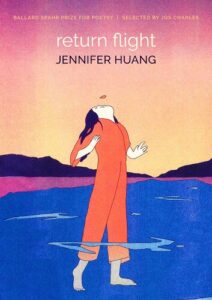

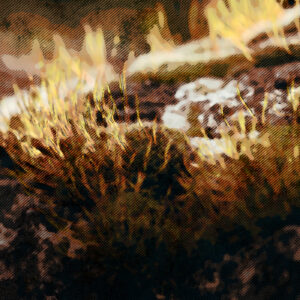
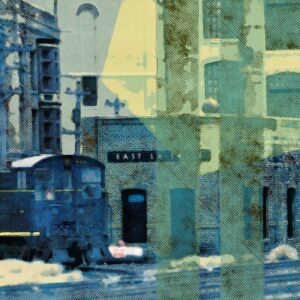
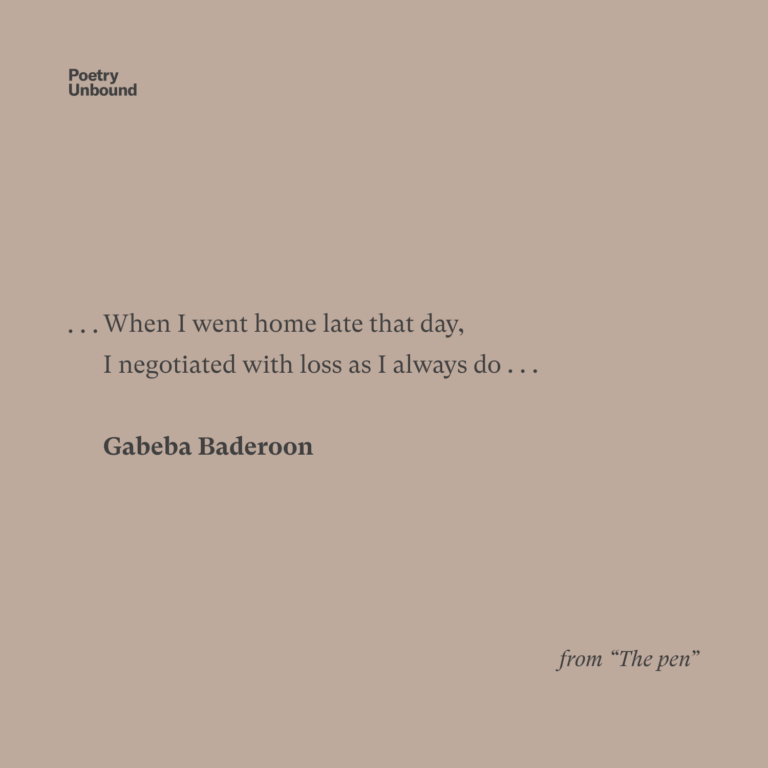
Reflections